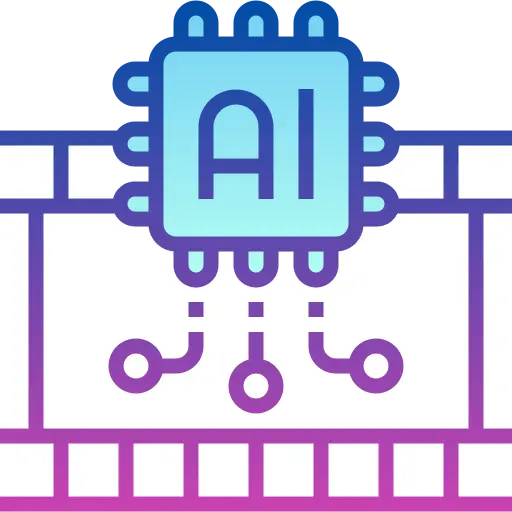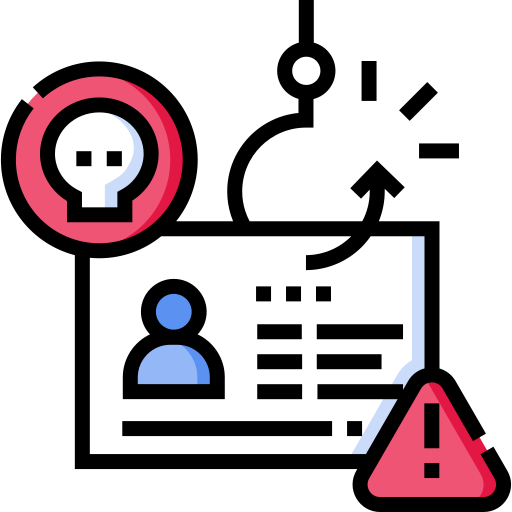Wonderful Output Of AI and Cybersecurity Integration!
AI and Cybersecurity Integration: Each time AI and Cybersecurity are integrated together a new and innovative tool will be created that can predict businesses to protect their gaps months in advance. AI is capable of not just anticipating future attacks but also thwarting them and eliminating them before they cause damage. AI’s capacity to analyze trends, online activity, and data collection make all of this feasible.

What is the advantage of AI and Cybersecurity Integration?
AI is Flexible and Learns New Things
With the aid of deep learning and machine learning, AI can, if needed, boost network security. This enables it to comprehend a company’s behavior in order to identify network trends and spot deviations before producing a response to them. As possible risks are recognized and stopped early on, this can eventually assist build tight security. It makes sense why it is so difficult for hackers to defeat artificial intelligence.
AI manages Load Balancing
The network of a business typically handles a large volume of traffic and hundreds of operations. A lot of data is exchanged daily between the company and its customers. Customers may stop doing business with the company if sensitive information is not protected. The best defense against people and bad threats to software is artificial intelligence. It can recognize threats that are disguised as routine tasks, unlike humans. The automation can quickly scan through massive volumes of data and traffic, defending the business against threats and viruses.

AI recognize Threats
No matter how much resources you devote to security, certain attacks will inevitably go unreported. Did you know that every year, hackers launch millions of attacks on businesses?
If threats are not identified and countered in a timely manner, they can seriously harm a network. Hackers are experimenting with new techniques today, from virus attacks that are undetectable by humans to social engineering. But it has turned out that artificial intelligence is the finest tool for spotting and preventing sporadic threats from killing a business.
What is the purpose of AI and Cybersecurity Integration?
A self-learning management system called artificial intelligence in cybersecurity can be developed using a variety of technologies to acquire data from various enterprise systems. To make sure the data is not vulnerable to assault, it is examined and cross-checked against billions of signals once it has been acquired.
Vulnerability Analysis
Hackers pay close attention to trends in addition to influencers who follow what’s hot and what’s not. Artificial intelligence (AI) systems in cybersecurity are taught to stay current with industry-specific and worldwide knowledge about risks to assist you in making crucial decisions and to highlight the weak points in your company.
Breach Risk Prediction
Artificial intelligence (AI)-based systems can advise you where and how you can be attacked so you can direct company resources and equipment toward weak points. Insights from AI analysis can also be utilized to configure and tighten security measures in order to strengthen your business’s cyber resilience.

False Positives Reducing
The time that could be spent resolving genuine issues is lost as a result of the increase in false positives. However, by utilizing AI in cybersecurity, the amount of false positives can be decreased, resulting in less time and resource wastage. AI is capable of quickly analyzing a wide range of security threats and incidents, including dangerous conduct and malware that could result in the disclosure of sensitive data. As hackers launch new assaults, AI continues to learn and adapt in accordance with the prevailing trends.
How Artificial Intelligence Could Resist Cyberattacks?
AI helps small- to medium-sized businesses and defends large organizations from harmful threats as cyberattacks increase in frequency. Here are some ways AI can stop cyberattacks:
Preventing spam or spoofing
A common issue that many organizations suffer from is when cyber attackers attempt to pose as a corporation to dupe their target. However, businesses can sort through mountains of data to develop algorithms that will identify trends and comprehend behavior so that anomalies may be uncovered. By carefully examining the message content and issuing appropriate warning signals, this method enables AI to identify spam and emails that are being sent in someone else’s name.
Protecting DNS Data
Using the Domain Name System to manage sensitive consumer data and corporate information is a frequent technique for online criminals. AI can sift through millions of DNS queries to identify criminals and prevent them from attacking enterprise systems. Hackers have the ability to intercept DNS requests and provide customers phony replies. Thousands of businesses deal with this enormous issue on a regular basis. DNS poisoning is used in 70% of all cyberattacks.
In addition to removing unsuitable information and access to dangerous websites, artificial intelligence is also capable of blocking online threats. Think of AI as a thick layer of defense against the internet, a dangerous environment where, if you are negligent, you could stumble into the traps of hackers and attackers.

Protecting of Authenticity
The importance of authentication cannot be overstated in terms of cybersecurity. While thieves continue to advance their techniques, AI enhances authentication by constantly identifying and addressing threats. For instance, AI will prompt a user to confirm their identification if they change their location, start using a different device, or attempt to access financial data that is unrelated to their line of work. When concentrating on login attempts to lower danger thresholds, artificial intelligence further provides visibility in real-time.
What are case studies of AI and Cybersecurity Integration?
Home Security
As machine learning and artificial intelligence gain in popularity, the home security market will be valued $74.75 billion by 2023. Since human mistakes and false alarms can overwhelm traditional home security systems, AI plays a significant role in home security. When you are not at home, Lighthouse AI, a device with artificial intelligence, can transmit notifications about animals, people, or anything else that might be suspect.
If your cat wanders into the living room or a trespasser scales your property fence, the Lighthouse app can keep you informed of what’s happening. The app can be used to add home members so that it doesn’t notify those you consider to be friends or family when an alert is sent. Home security cameras have developed into strong assets that every homeowner should purchase when paired with artificial intelligence. Conventional security systems would cause chaos by calling the police at the first sign of any activity, even if there was no threat.

Military Application
Artificial intelligence in the military has a ton of potential. The military must make judgments swiftly, thus this is not an option. Before being overloaded and running into a wall, humans can only process a certain amount of info. A US business developed Shield AI, an artificial intelligence-operated surveillance system specifically designed for military personnel, to deal with human issues. This employs a machine learning program that aids automobiles in acquiring knowledge about their environment. As a result, there is less risk to human life as military forces can explore hazardous sites like buildings, tunnels, and caves while on the battlefield.
In the ground and air domains of battle, artificial intelligence will develop further and assume a larger role. Additionally, AI-driven armored vehicles and pilotless aircraft are predicted to dominate the skies. Due to the nature of defense, delayed data processing might raise risk, hence AI speeds up the process.
What are the side effects of AI and Cybersecurity Integration?
AI is used by hackers
Although technology is developing, it’s important to remember that hackers can also follow trends. This indicates that they are continually looking for openings that they may take advantage of. It depends on who can develop a better algorithm that better caters to data and whether AI in cybersecurity is a double-edged blade that can be utilized in either direction. When viewed in this light, AI poses a security risk. Additionally, just as a business continuously scans its data for dangers, hackers do likewise to identify weak points in an organization’s cyber-defense system.
Jobless
Artificial intelligence (AI) in cybersecurity is a threat to employment, just like every artificial intelligence-driven system. Many businesses around the world are moving away from hiring IT professionals to manually test networks and maintain data integrity as AI gains popularity. Why squander resources, after all, when AI can complete the task more accurately and efficiently? While this may be advantageous for the business, it poses a threat to the livelihoods of millions of people who spent millions on college degrees in IT-related fields only to find that the market has replaced their needs with IT solutions, rendering their education obsolete.
Conclusion
AI has ingrained itself into a variety of enterprises, companies, and industries, including cybersecurity, as data forms the foundation of decision-making. As companies incorporate learning algorithms into their services and defend themselves from security threats, numerous cybersecurity businesses around the world have begun to recognize the value of AI in everyday operations. It is indisputable that AI technologies enable human security teams to excel at their work by identifying threats and providing accurate analysis so that cybersecurity experts may lower the likelihood of a breach and improve security. After all, humans are unable to keep up with the constantly evolving assault surfaces caused by modern businesses.







